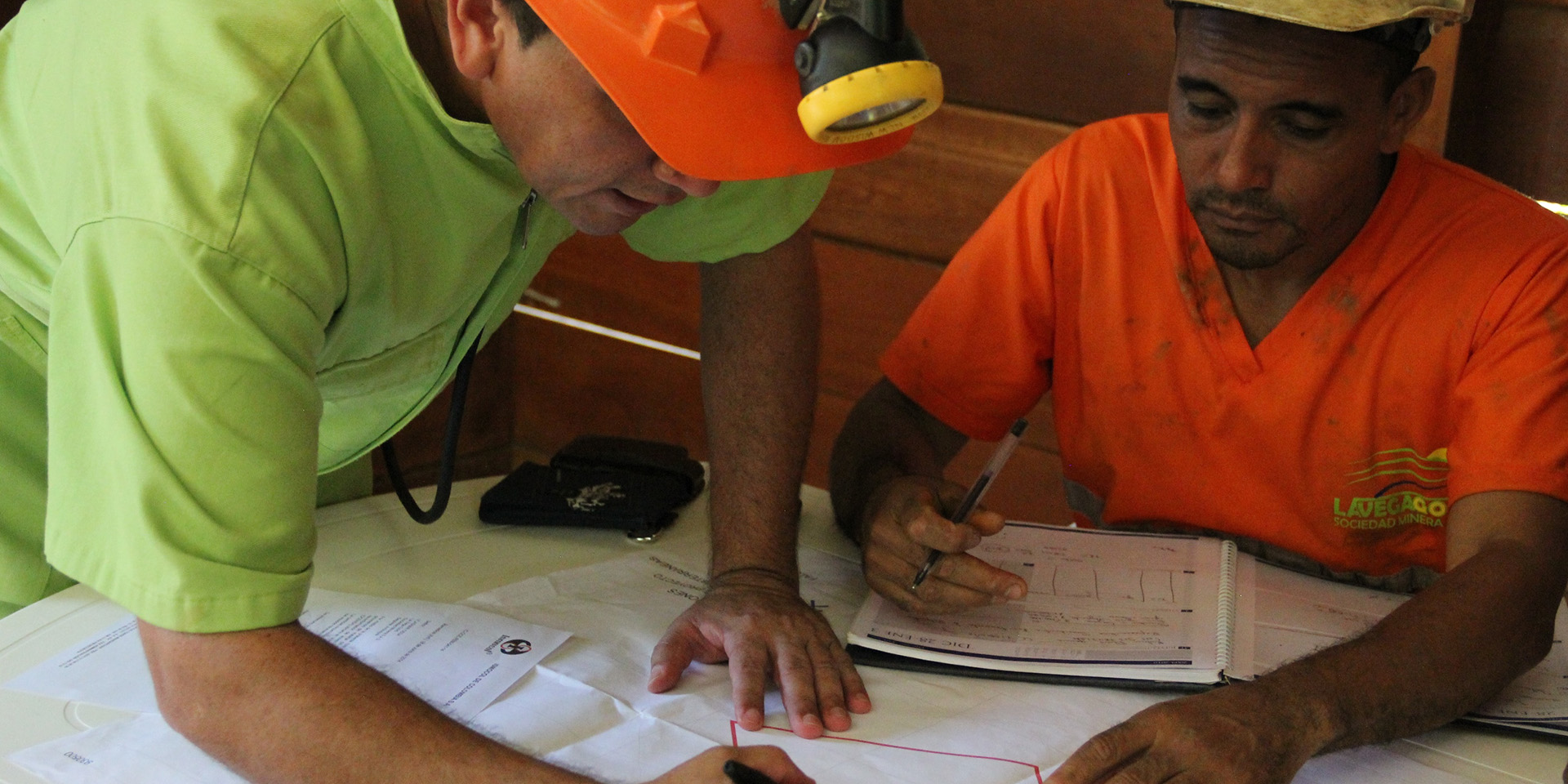
A Win-Win for Small Miners, Big Miners, and the Environment in Colombia
June 29, 2015 | 3 Minute ReadThrough an innovative partnership with mining company Gran Colombia Gold, Chemonics helped small miners legalize their operations and reduce their impact on the environment.
Chemonics International recently finished an innovative project in the mining sector. The obvious question for Chemonics and USAID is why would a development program choose to work in mining generally, and in Colombian gold mining specifically? A little context may provide the answer. Colombia has a long history of gold mining that dates to the pre-Columbian civilizations that inhabited the area and later to the time of the Spanish colonies. However, with a fivefold increase in gold prices in recent years, tensions between illegal artisanal miners and large title-holding mining operators have grown. So too have the impacts on the environment, with thousands of hectares turned into virtual lunar landscapes. While Colombian government institutions are considered relatively strong and well-resourced, the scale of the mining problem has surpassed their capacity to respond. The situation is exacerbated by the millions of dollars funnelled from the informal gold mining sector to illegal armed groups or laundered from the illegal drug trade.
Within this context, under the USAID BioREDD+ Program, Chemonics International was asked in 2013 to quickly design and implement a program to address these security, environmental, and livelihood issues in the department of Antioquia, one of Colombia´s premier gold producing regions. The challenge was to move beyond the traditional response of small-scale community projects, and develop solutions to address the root causes of the problems that built local capacity and created shared value for the artisanal mining communities and the large mining companies. To do so, the program focused on three solutions: 1) legalizing small mining units, 2) strengthening small miner associations, and 3) converting degraded mining land to alternative economic uses.
Legalizing and formalizing small mining units
Without a mining title, any mining operation in Colombia is illegal. Most artisanal miners, unsurprisingly, don’t possess titles. Illegality not only risks impounding or destruction of mining equipment by the government, but also increases exposure to extortion and reduces incentives to invest in sound mining practices. The obvious solution is to provide titles to small operators, but about 97 percent of Antioquia is already titled, so the possibility of accessing “free areas” for the smaller operators is negligible. Fortunately, a private contract between a title holder and small mining unit is legally valid and opens up a viable path to “legalization.”
The key is the interest of the title holder to enter into this type of arrangement and commitment by small miners to comply with all legal requirements. The program found a willing and able partner in Gran Colombia Gold—a Canadian-based mining company that is the largest underground gold and silver producer in Colombia. Gran Colombia offers business contracts to groups of artisinal miners, requiring them to form companies or cooperatives that comply with local employment and environmental laws, follow Gran Colombia’s rules and procedures according to the company’s approved operating plan, and deliver the ore to Gran Colombia’s plant for environmentally safe and more efficient processing. The company pays these miners the US dollar spot price for ore at a gold recovery rate that is higher than what the miners could achieve if they processed the ore themselves. In 20 months, Chemonics helped legalize or formalize 80 mining units in Antioquia, including 35 that signed operating agreements with Gran Colombia. This compared to little more than 100 legalizations, including only one in Antioquia, completed in the previous five year period. Furthermore, 72 of these legalized mining units (90 percent) eliminated mercury from their processes.
Strengthening small miner associations
It´s estimated that some 150,000 Colombian families depend on artisanal, small-scale mining for their wellbeing. While most of these operators are technically illegal, they are unlikely to disappear or be prohibited from mining. Negotiating with 150,000 families is impossible, but bringing together socially and geographically disperse small miners into associations is an efficient way to do business and is critical for implementing solutions at scale. Well-organized associations are also better placed to disseminate new practices and technology like zero-mercury processing of ore and to share information with their members on ways to become legalized, overcoming the initial scepticism to change business as usual. In all, through BioREDD+, Chemonics strengthened 24 mining associations representing more than 1,000 members, and helped three associations install zero-mercury processing plants, thereby removing one ton of mercury from entering Colombia´s river systems.
Converting degraded mining land to alternative economic uses
Post-mining restoration is governed by regulations that are seldom followed by small and artisanal operations. In part, this is because operators are asked to invest significant resources precisely at the time when cash flow from mining stops. As a result, smaller operators often leave significant environmental liabilities in their wake. Under BioREDD+, Chemonics worked with Colombian partners to implement a pragmatic model, whereby on-site heavy machinery was used to recontour degraded land and unimproved access roads, before being planted with Acacia mangium, a hardy, fast-growing tree species. Impressively, this restoration model costs less than $2,500 per hectare (less than one-fifth the cost of other restoration models), and generated jobs and income from forestry activities and apiculture production for a significant number of mining families. Over the course of the project, 770 hectares of degraded land were rehabilitated and 250 mining families became involved in alternative income generation linked to beekeeping.





























